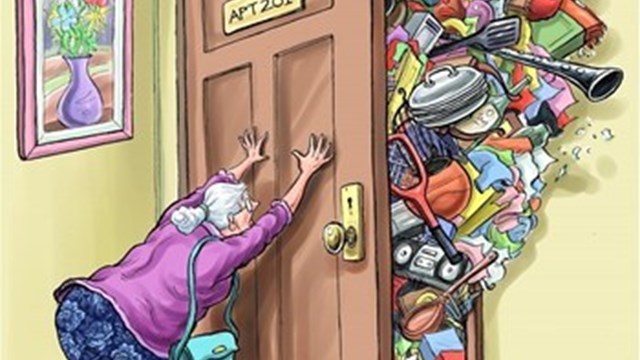Instances of home-sharing have skyrocketed recently due to the rise of websites such as Airbnb.com. For a small fee, these websites connect homeowners with people who want to find a place to stay for one night at a time. Homeowners rent their entire home or even a single bedroom therein, for a profit. But conflicts arise when the homeowner is the owner of a condominium unit because the unit owner’s decision to rent out the unit may not be permitted under the condominium bylaws.
Associations: Be Wary of Short Term Rentals
The rise of Airbnb.com raises significant concerns for condominiums. First, there is the issue of safety within a shared living space. When a condominium is rented, the renter gains access to facilities such as common areas. The Airbnb.com renters are not responsible for maintenance fees, and may misuse equipment or take advantage of amenities reserved for homeowners.
Another concern is whether a transient renter is covered under the condominium’s master insurance policy. If a transient renter gets hurt within the common areas of the building, or causes property damage, it is unclear if the policy provides coverage. In addition, some insurers may consider short-term rental units as being used for commercial purposes, which may not be covered under the policy. The practice also raises concerns with government officials regarding how home-sharing impacts local zoning laws and whether the practice can be taxed.
A Boston-Area Condo’s Struggle
Our firm recently was retained by the condominium trust of a small condominium building after residents noticed that one unit was being rented out via Airbnb.com. The unit owner was providing the renters the building keys by leaving them in an outdoor lockbox. The key allowed the renters access to all the common areas including the hallways, basement, lobby and roof. The renters were never accompanied by the unit owner.
The condominium association had concerns about the unit owner’s continued rental of the unit. First, the renters would cause increased liability exposure because the condominium’s insurance coverage was meant for a building occupied by owners and tenants under long term leases. Second, some of the renters were rowdy and intoxicated and some residents complained they no longer felt safe. Third, the renters were smoking on the rooftop near the dryer vents, which caused toxic fumes and put the building at risk of fire.
Our firm sent several communications to the unit owner asking him to stop renting his unit, but he failed to respond. Ultimately, we filed an injunction to stop the unit owner from continuing to illegally rent out his unit. The court determined that short term rentals were not allowed and ordered him to stop future rentals of his unit and remove advertisements showcasing the unit from Airbnb.com. The court also awarded that the homeowner pay all of the trust’s legal fees and significant fines.
Take a Proactive Approach
We expect to see more conflicts between unit owners using their units as income sources via use of Airbnb.com and condominium associations in the future. Condominium trustees should consider taking a proactive approach to control the practice by adding protective language to their condominium bylaws. For example, associations should consider adding a rule that unit owners may rent out their units but all rentals must have a minimum rental period. Another rule that a trust could vote to implement is that each unit must be rented as a whole, which would stop a unit owner from renting out individual rooms therein. Finally, condominiums should add an amendment requiring that all rental leases must be in writing and must be signed and submitted to the trust prior to tenancy.
We strongly recommend that condominiums vote on an amendment allowing fines to be levied on unit owners who violate the condominium rules and for those fines to be collectable as a lien on the unit pursuant to M.G.L. c. 183A, Sec. 6. This language should provide that costs of collection, including all reasonable attorney’s fees, are assessed as a common area expense against the unit. As a practical matter, this provision allows condominium associations to obtain a court order to stop the home-sharing practice with legal expenses being the responsibility of the offending unit owner. The prospect of paying legal fees and significant fines may dissuade these unit owners from engaging in home sharing.
Even if your condominium bylaws already contain these protective provisions, you still may find that one of the unit owners is ignoring the rules and renting out the unit. Unit owners may decide that the risk of being “caught” by the association is worth the money they will earn violating the rules. Condominiums who find themselves in that situation should immediately hire counsel. An attorney can draft a cease and desist letter which puts the offending unit owner on notice that they are violating the rules. If, after thirty days, the rental continues, the attorney can file a lawsuit.
Some condominium communities may determine that the risks associated with short term rentals are outweighed by the considerable financial benefits to the unit owners that come from renting out their units. In that case, they should consider implementing rules containing short term rental conditions, such as requiring a minimum number of days a unit may be rented out, requiring the unit owner to meet the renters in person and creating a list of rules about use of common areas that must be distributed to each renter. They should also review the insurance policy to ensure short term renters are covered.
Condominium associations have a duty to enforce the rules on behalf of all of the unit owners. While short term rentals do create cash flow for unit owners, the risks of liability exposure, damage to common areas, and safety to all residents are real concerns. The rise in popularity of websites like Airbnb.com demonstrates a trend in short term rentals that is here to stay and condominium associations must take steps now to ensure it is being done properly and in best interest of the entire condominium.
About the Authors
Attorney Howard S. Goldman, founding partner of the law firm of Goldman & Pease LLC, Needham, Massachusetts, concentrates his practice in the areas of real estate, finance, and civil litigation. He is an active member of the Massachusetts, Norfolk, and Rhode Island Bar Associations in his field and is also an active member of CAI and IREM. Senior Associate Rebecca Erlichman assisted in drafting this article and focuses her practice on civil litigation matters, including condominium disputes, transactional real estate matters, real estate litigation and estate planning.










Leave a Comment